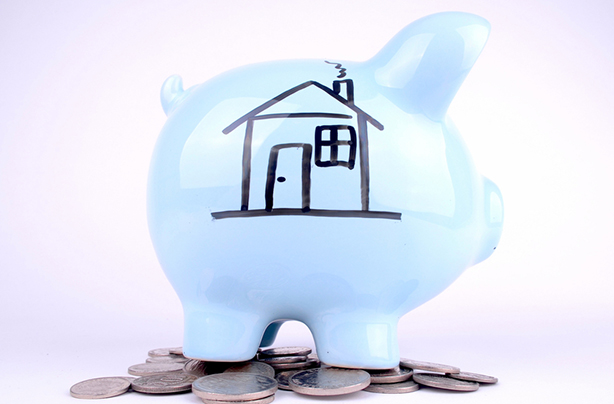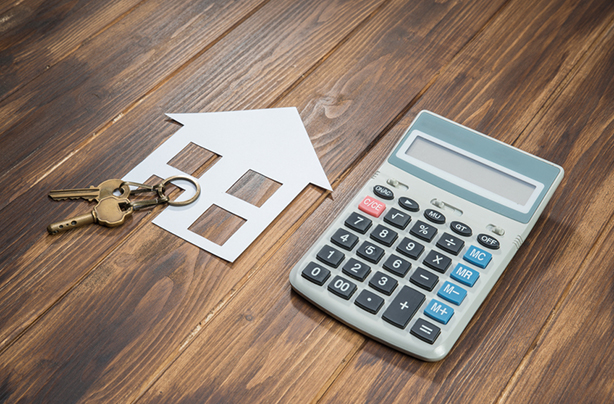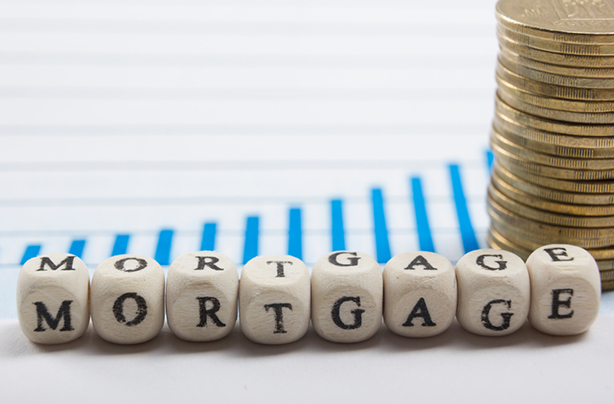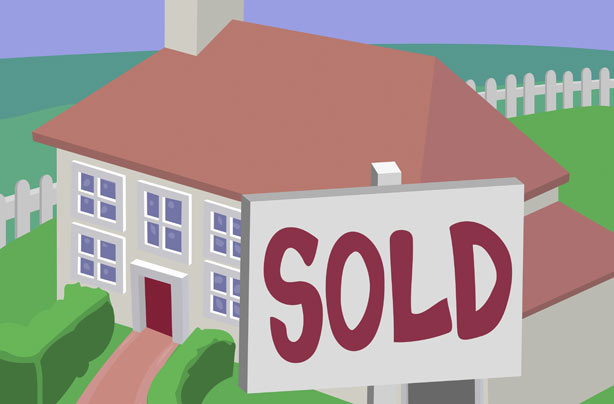Mortgage rates explained: What to look out for when picking your mortgage interest rates
How much interest rate should you be paying on your mortgage? We explain the different interest rates available for you

When you borrow money for anything, you’ll have to pay it back with interest. Effectively, interest is the cost of borrowing, and it’s normally expressed as an annual percentage of the amount you’re borrowing. That percentage is the interest rate.
Interest rates are set by the lending bank, but influenced by market conditions such as the Bank of England’s base rate and by the yield on various government bonds. As of September 2016, interest rates are very low.
If the base rate or the yield on government bonds rises, lenders will charge more, because their cost of borrowing will increase.
Interest rates are inextricably linked to mortgages: it’s important to consider from the word go how a change in interest rates could affect your mortgage repayments and your ability to service your mortgage.
Apart from looking into how much you can afford to repay each month and what sort of deal you can get, you should also take into account your personal circumstances when choosing a mortgage.
For example, if your work is tied to the economy, then it might be more advisable to get a variable mortgage, as interest rates often fall when the economy is doing badly so you can benefit from a lower mortgage even if your pay is affected.
On the other hand, if you have a safe job with a largely fixed salary (rather than a lot of bonus and commission), a fixed rate would ensure you can properly budget for your repayments.
GoodtoKnow Newsletter
Parenting advice, hot topics, best buys and family finance tips delivered straight to your inbox.
There are various tables showing selected mortgage deals on offer in the newspapers, which can help you get a feel for the options available to a borrower. Comparison websites are also useful.
Check the best mortgage rates available now
There are two main categories of mortgages when it comes to rates: fixed rate and variable rate.
See more details about mortgage types outside of interest rate
What are fixed rate mortgages?
With fixed rate mortgages, the interest you pay stays the same for a number of years, regardless of what happens to interest rates. This is normally for a period of between two to five years, though it could be up to 10 years.
Fixed rate mortgages pros
You can rest assured that your monthly payments will stay the same, no matter what happens to interest rates, helping you to plan your spending better.
If interest rates go up, you will avoid paying higher charges.
Fixed rate mortgages cons
If interest rates fall or stay stagnant, you are worse off, as fixed rate deals are normally higher than variable rate mortgages.
Things to look out for with fixed rate mortgages
Consider exit penalties if you want to leave the deal early, because once you agree to a fixed rate mortgage, you are tied in for the period during which the rate is fixed - unless you pay the penalty.
You should also make sure you shop around for a new mortgage deal a few months before the fixed period ends, or you will be automatically transferred to your lender’s standard variable rate, which could end up being more expensive.
If you’ve chosen a cheap deal with a seven or 10 year fix, make sure the mortgage can be transferrable if you want to move. If you haven’t checked this and you decide to move house in two or three years, there could be a big charge for repaying your mortgage early. Make sure you read the small print and consider your future plans before deciding to fix for a long time.
What are variable rate mortgages?
Although variable rate mortgages are usually lower, the amount you’ll pay will change depending on the movement of interest rates. Unlike a fixed rate mortgage, in which you’ll pay the same amount every month, you could end up paying more or less each month, so it’s important to make sure you have some savings set aside just in case rates rise and your payments increase.
There are several different types of variable rate mortgages, including standard variable rate, discount mortgages, capped rate mortgages and tracker mortgages.
Standard variable rate (SVR)
Standard variable rates are set by lenders, with each lender setting their own rate, which will fluctuate according to market conditions. It’s the type of mortgage you are most likely to be transferred onto after completing a fixed, tracker or discounted mortgage, and will last as long as your mortgage or until you take out another deal; remember that at that point, you may be charged further fees for the new deal.
Standard variable rate pros Unlike a fixed rate, you are not tied in. You can overpay or leave at any time without having to pay charges.
Standard variable rate cons Your payments could go up or down at any time during your loan depending on the rates set by the lender.
Discount mortgages
This type of mortgage offers a discount off the lender’s SVR, and normally only applies for a few years, normally two or three. But while discount mortgages can be appealing, it’s worth shopping around and doing your research.
While one lender may seemingly have a bigger discount than another, don’t forget that their SVR vary too, so a bigger discount doesn’t necessarily mean a lower interest rate. If a bank has a smaller discount off a smaller SVR, that could be a better option than a bank with a bigger discount off a bigger SVR. If the lender charges a fee, this has to be taken into account when assessing the advantage of a discounted rate.
Discount mortgages pros As the rate starts off at a discount, monthly repayments will initially be lower.
If the lender lowers its SVR, you’ll pay less every month.
Discount mortgages cons As with any SVR, the lender can raise the rate at any time, meaning you could end up paying more.
If you want to leave before the end of the discount period, you may have to pay penalty fees.
Tracker mortgages
Tracker mortgages directly track another interest rate, usually the Bank of England base rate. For example, the interest rate will be equal to the base rate plus 2%; if the base rate goes up by 1%, the tracker rate will go up by 1%.
Tracker mortgages usually last only a few years - normally between two to five years - although there are some lenders who offer lifetime tracker mortgages, some of which are penalty-free if you want to opt out early.
Tracker mortgages pros If the rate your mortgage is tracking falls, so will the amount you pay.
Tracker mortgages cons If the rate your mortgage is tracking rises, so will your payments.
You may have to pay penalties if you decide to switch mortgages before the end of your deal.
Things to look out for with tracker mortgages Make sure you check that your lender cannot increase rates even when the rate your mortgage is tracking hasn’t moved. While it’s unlikely, it has happened so it’s better to be safe than sorry.
Check the best mortgage rates available now
Capped rate mortgages
With capped rate mortgages, your rate corresponds with the lender’s SVR, but is capped so that the rate can’t rise above a certain point.
Capped rate mortgages pros You can enjoy the certainty that your rate will never go above a certain level, (although you should make sure that you would be able to afford it if the rate did rise to the maximum point).
Your monthly payments would be lower if the SVR falls.
Capped rate mortgages cons The rate is normally higher than other fixed and variable rates, and the cap is usually set at a high level. Your lender can change the rate at any point under the level of the cap.
Trusted, informative, and empathetic – GoodToKnow is the ultimate online destination for parents. At GoodtoKnow, our mission is 'simple': we're trying to make sense of parenthood. On the site, you'll find everything you need for a happy, healthy family life. Our huge archive of content includes more than 18,000 articles and 1,500 how-to videos. These include expert-backed advice features on parenting, dealing with relationship changes after having a baby, self-care for mums and managing your family finances. We also feature tried-and-tested product reviews and buying recommendations for every stage of family life - from prams and Moses baskets to birthday gifts and top toys.
-
 Lifetime mortgages: What is a lifetime mortgage and are they right for me?
Lifetime mortgages: What is a lifetime mortgage and are they right for me?Heard a lot about lifetime mortgages - or reverse mortgages - but not sure what they're about? Read our guide to see if it's the right option for you
By GoodtoKnow
-
 Mortgage deposit: How much do I need to buy a house?
Mortgage deposit: How much do I need to buy a house?Saving for a deposit can be the most daunting element of buying a house, but remember that there’s no set amount you’ll need to put down
By GoodtoKnow
-
 Government to end Help To Buy mortgage scheme: How will it affect you?
Government to end Help To Buy mortgage scheme: How will it affect you?This week, the government announced that the Help To Buy mortgage guarantee scheme would be ending at the end of 2016.
By GoodtoKnow
-
 How to remortgage your house – and find the best remortgage deal
How to remortgage your house – and find the best remortgage dealRemortgaging is essentially switching what you owe on your current mortgage into a different mortgage product, either with the same bank or a different lender altogether.
By GoodtoKnow
-
 Buying a house: Everything you need to know as a first time homebuyer
Buying a house: Everything you need to know as a first time homebuyerBuying your first home is an extremely exciting time, but it can also be complicated. How much money will you need? What sort of mortgage should you opt for? How will stamp duty affect you?
By GoodtoKnow
-
 How to get a mortgage: An easy checklist for everything you need to do
How to get a mortgage: An easy checklist for everything you need to doRead our easy guide to demystify the mortgage process. Our step-by-step mortgage checklist will tell you everything you need to know about buying a home
By GoodtoKnow
-
 Mortgage types explained: Which type of mortgage is right for me?
Mortgage types explained: Which type of mortgage is right for me?When choosing what mortgage to go for, it’s important to focus not only on on the interest rate and fees you’ll be charged, but also the type of mortgage that’s best for you
By GoodtoKnow
-
 Sell my house fast: How to sell your house quickly
Sell my house fast: How to sell your house quicklyThinking of selling your house or flat? Even if drastic home improvements are out of your budget, there are lots of cheaper ways you can make your home look more attractive to both the estate agents who come to value it and prospective buyers who come to view it. Read our top tips for selling your house... fast.
By GoodtoKnow